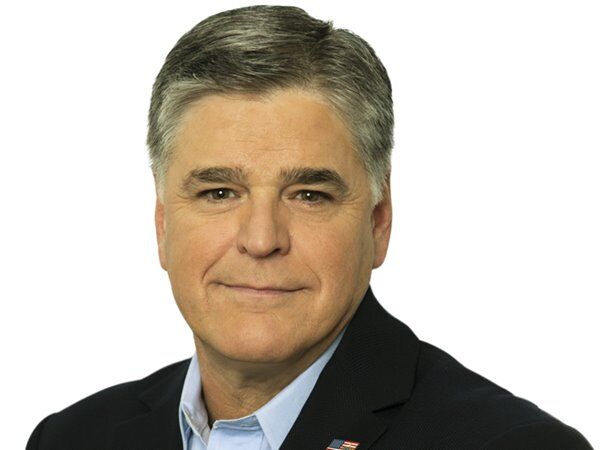Iran and nuclear watchdog sign agreement seeking path to restart cooperation
News > International News

Audio By Carbonatix
1:36 PM on Tuesday, September 9
By FATMA KHALED and STEPHANIE LIECHTENSTEIN
CAIRO (AP) — Iran and the International Atomic Energy Agency signed an agreement Tuesday in Cairo to pave the way for resuming cooperation, including on ways of relaunching inspections of Iran’s nuclear facilities.
The announcement followed a meeting among Egyptian Foreign Minister Badr Abdelatty, his Iranian counterpart Abbas Araghchi and International Atomic Energy Agency Director General Rafael Grossi.
No further details were provided about the agreement, but Grossi said at a joint news conference after the signing that it was technical in nature and highlighted the “indispensable” inspection work that needs to resume in Iran under the treaty of non-proliferation of nuclear weapons.
“It’s a step in the right direction," Grossi said.
The Egyptian foreign ministry, meanwhile, said the agreement followed “intensive” diplomatic efforts by that country. And Egyptian President Abdel-Fattah el-Sissi noted Tuesday that the IAEA plays a major role in supporting nuclear non-proliferation provisions, while emphasizing the right of the Non-Proliferation Treaty State Parties to the peaceful uses of atomic energy.
On July 2, Iran’s President Masoud Pezeshkian signed a law adopted by his country’s parliament suspending all cooperation with the U.N. nuclear watchdog. That followed Israel’s 12-day war with Iran in June, during which Israel and the U.S. struck Iranian nuclear sites.
The only site inspected by the IAEA since the war has been the Bushehr Nuclear Power Plant, which operates with Russian technical assistance. Inspectors watched a fuel replacement procedure at the plant over two days starting Aug. 27.
Araghchi, the Iranian foreign minister, told reporters the agreement addresses his country’s concerns and security challenges and lays out technical requirements for cooperation with the IAEA. But he warned that in the event of “any hostile act” against Iran, including the reimposition of U.N. sanctions, Tehran would regard the agreement with the IAEA as terminated.
The meeting came at a sensitive time as France, Germany and the United Kingdom on Aug. 28 began the process of reimposing sanctions on Iran over what they have deemed non-compliance with a 2015 agreement aimed at preventing Iran from developing nuclear weapons.
The process — termed a “snapback” by the diplomats who negotiated it into Iran’s 2015 nuclear deal with world powers — was designed to be veto-proof at the U.N. and could take effect in a month.
The move set a 30-day clock ticking for the resumption of sanctions unless the West and Iran reach a diplomatic agreement.
European nations have said they would be willing to extend the deadline if Iran resumes direct negotiations with the U.S. over its nuclear program, allows U.N. nuclear inspectors access to its nuclear sites, and accounts for the more than 400 kilograms of highly enriched uranium the U.N. watchdog says it has.
Late Tuesday, a key European Union official cautiously welcomed the latest development.
“Today’s framework deal for resuming inspections of Iran’s nuclear facilities could mark a crucial step for nuclear diplomacy, provided there is rapid implementation by Iran,” EU foreign policy chief Kaja Kallas wrote in a post on X, adding that she spoke with both the IAEA chief and the Iranian foreign minister.
IAEA inspectors have been unable to verify Iran’s near bomb-grade stockpile since the start of the war on June 13, which the U.N. nuclear watchdog described as “a matter of serious concern.”
A confidential report by the Vienna-based IAEA said that as of June 13, Iran had 440.9 kilograms (972 pounds) of uranium enriched up to 60%.
If enriched to 90%, the uranium would be enough to make 10 nuclear weapons, according to IAEA calculations, though creating an actual weapon would require other expertise such as adding a detonation device.
According to the safeguards agreement that Iran has with the U.N. nuclear watchdog, Iran is obliged to produce a “special report” detailing the location and status of its nuclear material, including its highly enriched uranium stockpile, following events such as attacks or earthquakes, a senior diplomat who spoke on the condition of anonymity to describe sensitive talks said.
Egypt has been helping bolster cooperation between Iran and the IAEA.
Relations between Iran and the nuclear watchdog soured after the 12-day air war in June, which saw key Iranian nuclear facilities bombed. The IAEA board said on June 12 that Iran had breached its non-proliferation obligations, a day before Israel’s airstrikes over Iran that sparked the war.
___
The Associated Press receives support for nuclear security coverage from the Carnegie Corporation of New York and Outrider Foundation. The AP is solely responsible for all content.
___
Additional AP coverage of the nuclear landscape: https://apnews.com/projects/the-new-nuclear-landscape/











